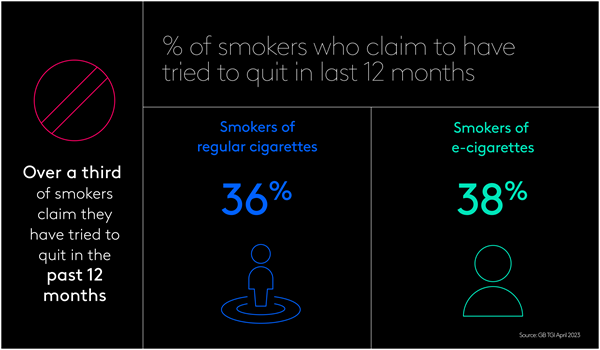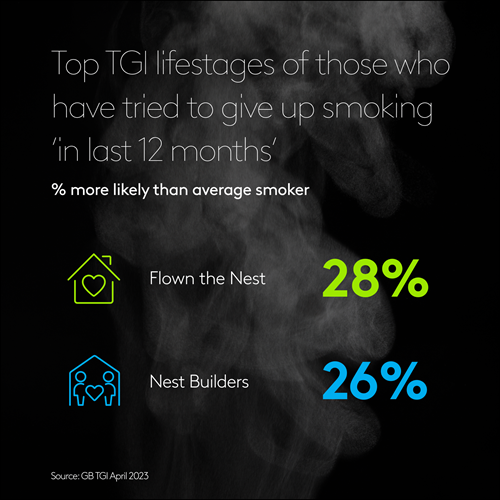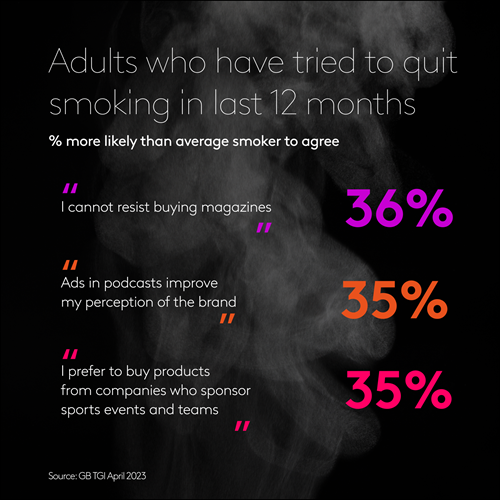Later this month is World No Tobacco Day, an annual campaign by the World Health Organisation highlighting the dangers of tobacco. The risks of smoking and tobacco are well known but the popular alternative of e-cigarettes is rarely out of the news these days, particularly with regard to problems around teenagers being addicted to these nicotine-infused products.
So what does the smoking and quitting landscape look like in Britain today? Latest GB TGI data reveals that 11% of British adults aged 18+ (5.7 million) claim to have smoked cigarettes (excluding e-cigarettes) in the past 12 months. A not dissimilar number of adults claim to have smoked e-cigarettes in the last year, comprising 10% of adults.
Both regular and e-cigarettes have a skew towards young adults, with for example e-cigarette users 45% more likely than the average adult to be aged 18-24.
The advertising of smoking and vaping is of course strictly prohibited, but methods for quitting are not, making those seeking to give up a potentially lucrative target for many marketers.
Indeed, TGI shows that a large minority of both cigarette and e-cigarette smokers are interested in quitting. In total 4.3 million adults aged 18+ claim to have tried to give up smoking in the last 12 months.

40% of those who have recently sought to quit smoking (either regular or e-cigarettes) claim not to have used any specific method, however 32% claim to have used e-cigarettes to do so, whilst 17% have used nicotine patches and 13% nicotine gum.
Smokers who have tried to give up recently are significantly more likely than the average smoker (of either cigarettes or e-cigarettes) to be in the TGI lifestage group ‘Flown the Nest’ (aged 15-34, not married or living as a couple, do not live with relations) or to be ‘Nest Builders’ (aged 15-34, married/living as a couple, do not live with son/daughter).
We might speculate that as many in these life stages embark on or prepare for a new chapter in their lives, it is a timely prompt to get rid of cigarettes for good. Indeed, those seeking to quit smoking are over twice as likely to claim to be expecting the birth of their first child in the next year or to move in with their partner.

Those seeking to quit smoking are considerably more likely than the average smoker to engage with a range of media. They are particularly likely to be positively disposed towards magazines, podcast advertising and sports sponsorship.


